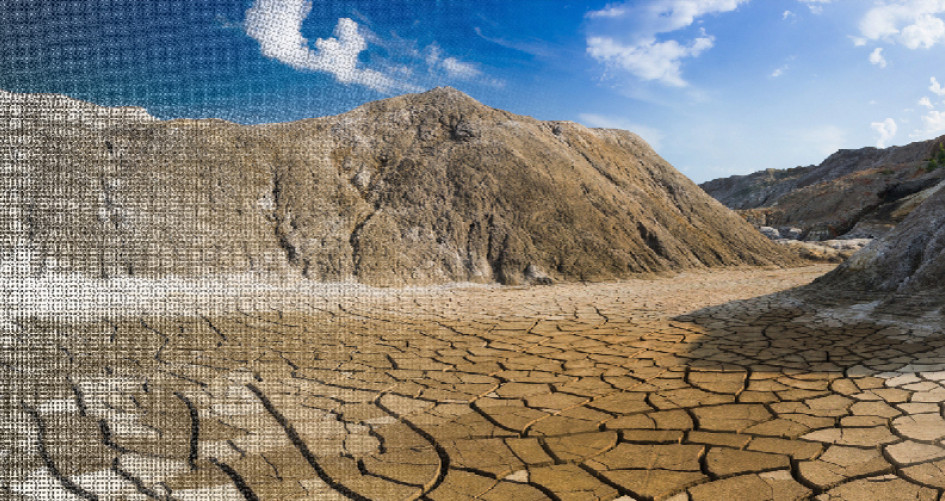Nationally determined contributions
The submission of nationally determined contributions was substantially delayed in 2020 in many countries owing to the COVID-19 pandemic. As at 31 December 2020, 48 nationally determined contributions had been received from 75 Parties. As a result, the NDC synthesis report in two stages: an initial version in February 2021 on the basis of the 48 submissions received, and a final version before the Glasgow Conference.
Mitigation
In 2020, 28 Parties submitted their long-term low greenhouse gas emission development strategies.
Working through its decentralized regional collaboration centres, the secretariat worked with a global coalition of countries and international institutions to mobilize support for ambitious climate goals, organizing virtual regional dialogues and webinars.
The coordination and regional activities of the Nairobi Framework Partnership focused on enhancing the capacity of designated national authorities to become fully operational. It also helped build national capacity to develop clean development mechanism project activities; promote investment opportunities for projects; improve information-sharing, outreach and training; and strengthen inter-agency coordination.
Finally, the Katowice Committee of Experts on the Impacts of the Implementation of Response Measures met once virtually in 2020 to kick-start delivery of its workplan and define a strategy to implement future activities.
Adaptation
In 2020, the Least Developed Countries Expert Group maintained its direct support to countries through virtual dialogues to monitor progress, identify challenges and help target technical assistance. It published its 2020 progress report on the process to formulate and implement national adaptation plans and met with Parties in the first quarter of 2020 to take stock of progress in achieving its mandate.
In collaboration with the National Adaptation Plan Global Network, the Adaptation Committee published a toolkit for engaging the private sector, which proposes methods and approaches that countries can use to strengthen partnerships with business entities and create a more inclusive and participatory national adaptation process. The Adaptation Committee also initiated analytical work on the global goal on adaptation and launched its technical paper on data for adaptation at different spatial and temporal scales.
The technical examination process on adaptation ended in 2020, after five years of work. For the first time, the annual technical expert meeting included a visual art competition for children 17 years and under, which showcased their vision of a resilient future.
The Nairobi work programme on impacts, vulnerability and adaptation to climate change convened partners and experts, constituted bodies and Parties on topics such as oceans, coastal areas, and biodiversity of forest and grassland ecosystems. Making the most of its relationships with academic institutions, United Nations entites and other partners, the UNFCCC secretariat continued to involve researchers and students in developing climate scenarios to support national decision-making and policy making and, help close persistent knowledge gaps.
The Executive Committee of the Warsaw International Mechanism further strengthened its institutional set-up to better support developing countries in averting, minimizing and addressing loss and damage associated with catastrophic climate-related impacts and slow, incremental climate processes. It focused on providing technical support on risk management approaches and climate-related human mobility, and increased cooperation in relation to slow onset events, non-economic losses, and action and support. In 2020, the Executive Committee of the Warsaw International Mechanism published jointly with the Technology Executive Committee a policy brief on technological solutions to address climate change risks in coastal zones.
Climate finance
Progress was made on the critical issue of climate finance even in the absence of formal intergovernmental negotiations. Thematic issues, such as finance and investment for a sustainable recovery, needs-based climate finance, the work of the Standing Committee on Finance and the pledge by developed countries to mobilize USD 100 billion annually, were discussed by Parties and observer organizations during the June Momentum for Climate Change and the 2020 Climate Dialogues. Also discussed in 2020 was the issue of access by developing countries to funding from the Green Climate Fund.
In response to the challenges of the pandemic, the Adaptation Fund took immediate measures to give flexibility to projects. It was the first climate fund to hold a virtual board meeting and approve projects virtually. The Adaptation Fund also approved a new dedicated funding window for enhanced direct access and raised USD 116 million in new pledges after raising its annual resource mobilization target by one third, to USD 120 million.
Design and preparation of the next Standing Committee on Finance forum, planned for 2021, took shape thanks to input from Parties, climate funds, intergovernmental organizations and experts.
Progress also continued on the Needs-based Finance project to facilitate access to and mobilize climate finance for mitigation and adaptation projects in developing countries. More than 100 countries participated in assessing needs and flows of climate finance.
Technology
The Technology Executive Committee updated Parties on the implementation of the technology framework and discussed how the work of the Technology Mechanism and climate technology can contribute to global efforts to recover better. It also held regional four virtual events to explore new sustainable solutions for cooling that take into consideration climate impacts and new societal needs.
The Technology Executive Committee also organized an event on innovative approaches for climate adaptation technologies as part of the 4th Global Sustainable Technology and Innovation Community Conference.
Together with the Green Climate Fund, the Global Environment Facility, the United Nations Environment Programme, and the United Nations Environment Programme and Technical University of Denmark Partnership, the secretariat helped developing countries plan and implement climate actions. It continued to promote the global technology needs assessment project, monitored the implementation of technology action plans in developing countries and published a synthesis report on technology needs identified by developing country Parties, for consideration at the fifty-second session of the Subsidiary Body for Implementation.
Capacity-building
In 2020, the secretariat focused on strengthening the coherence and coordination of capacity-building activities under the Convention and the Paris Agreement, as well as supporting the Paris Committee on Capacity-building in successfully concluding activities under its first workplan and preparing its second workplan.
The Paris Committee on Capacity-building (PCCB) Network was launched in 2020 as a critical tool to increase the reach and impact of capacity-building efforts under the Paris Agreement. The Paris Committee on Capacity-building organized, with support from the Network, the Capacity-building Momentum to Recover Better initiative – four virtual events on capacity-building for enhancing resilience at the local level, the “dos, don’ts and doubts” of virtual capacity-building, capacity-building needs related to enhancing nationally-determined contributions, and the work of the Paris Committee on Capacity-building in 2020 and going forward.
In addition, together with the United Nations System Staff College, the secretariat conducted capacity building activities on legal matters and organized an online course titled "The Paris Agreement on Climate Change as a Development Agenda" for development practitioners from the United Nations system, governments, non-governmental organizations, the private sector, civil society and academia whose work relates to climate change and sustainable development. It has also engaged in various partnerships and collaborations with academic institutions and international organizations on building capacity to promote implementation.
Transparency, reporting and review
The secretariat continued to support Parties in implementing the existing measurement, reporting and verification system, and continued to lay the groundwork for Parties’ implementation of the enhanced transparency framework under the Paris Agreement. It also organized annual meetings of lead reviewers for the review of biennial reports and national communications and for reviews of greenhouse gas inventories of developed country Parties, and continued to support the Consultative Group of Experts to successfully implement its workplan in 2020 and published various resource materials.
The secretariat worked in collaboration with partner organizations to support developing country Parties in formulating their nationally determined contributions and preparing to implement and track progress. It also launched the Universal Participation in the Enhanced Transparency Framework initiative, which serves as a platform for the international community to collaborate, mobilize and act.
The secretariat completed 91 technical reviews, analyses and assessments of annual greenhouse gas inventory submissions, biennial reports and biennial update reports, including REDD+ results and REDD+ forest reference emission levels. It published 112 reports on the reviews of those submissions. The secretariat organized reviews of 26 greenhouse gas inventories, virtual multilateral assessment workshops for 10 developed countries and a presentation of biennial update reports – also known as facilitative sharing of views – for 17 developing countries, and the international assessment and review of the fourth biennial reports. The secretariat also continued to coordinate the assessment of progress developing countries in reducing deforestation.
The secretariat trained experts on the review of national communications and biennial reports and on the technical analysis of biennial update reports, as well as on the annual reviews under Article 8 of the Kyoto Protocol. It continued to enhance all systems and tools to facilitate reporting and review processes, and regularly updated its greenhouse gas data interface to publish the most recent data from Parties. The secretariat also initiated an analysis of possible design and infrastructure options for the tools required to support the implementation of the enhanced transparency framework.
Carbon markets
In 2020, the clean development mechanism issued 70.9 million certified emission reductions (or carbon credits) to the developing countries hosting clean development mechanism activities – the highest volume since 2013. Countries submitted a large number of requests for renewal of ongoing clean development mechanism activities, while the voluntary cancellations of clean development mechanism carbon credits as related to private companies’ corporate social responsibility programmes, citizens’ climate actions and conversion of certified emission reductions into other schemes saw an 80 per cent increase compared with in 2019.
The Executive Board of the clean development mechanism ensured business continuity during the pandemic by switching to a virtual working mode and introducing flexible measures with respect to on-site inspections requirements, adherence to the monitoring plan, accreditation procedures and deadlines for submitting post-registration change requests.
The secretariat continued to enhance and offer access to open-data sources and reached out to entrepreneurs, project developers and the public to help them better understand the carbon credit market and identify opportunities for reducing or offsetting emissions.
Science-based activities
The secretariat continued to strengthen its engagement in support of science–policy knowledge-sharing, including on the state of the global climate system and its observation, modelling, research and climate services in support of mitigation and adaptation action and reporting, and input to the second periodic review of the long-term global temperature goal and preparatory efforts for the global stocktake.
Virtual process, tangible results
To ensure the continued functioning of the intergovernmental process in the context of the COVID-19 pandemic, the secretariat intensified the support provided to the COP 25 Presidency, the incoming COP 26 Presidency, the Bureau of the COP, the CMP and the CMA, and the Chairs of the subsidiary bodies to help them guide the UNFCCC process in a manner that maximizes progress and minimizes delays, while addressing emerging legal issues.
In an effort to keep Parties and stakeholders engaged, the Chairs of the subsidiary bodies, in collaboration with the COP 25 Presidency and the incoming COP 26 Presidency, convened two series of virtual meetings: the UNFCCC June Momentum for Climate Change, held from 1 to 10 June 2020, and the UNFCCC Climate Dialogues 2020, held from 23 November to 4 December 2020. Formal negotiations and decision-making procedures were not part of these events.
UNFCCC June Momentum for Climate Change
The aim of the June Momentum was to showcase progress on climate action despite the COVID-19 pandemic. The 23 virtual meetings led to active exchanges among Governments, experts and relevant stakeholders around the world and was an opportunity to enhance understanding of climate change, climate action and the negotiation process. The June Momentum helped advance technical work under the constituted bodies and provided a platform for information exchange and engagement on other work being done under the UNFCCC, including on adaptation, mitigation, science, finance, technology, capacity-building, transparency, gender, Action on Climate Empowerment, and the preparation and submission of NDCs. It also featured an event with the scientific community to discuss the impacts of the COVID-19 pandemic on science observation and research, including on changes in greenhouse gas emissions and concentrations.
UNFCCC Climate Dialogues 2020
The Climate Dialogues provided a platform for Parties and other stakeholders to showcase progress in 2020 and exchange views and ideas to pave the way for a successful Glasgow Conference.
With a total of 83 meetings, the Climate Dialogues was one of the largest virtual events on the United Nations agenda in 2020. Over 8,000 registered participants attended the meetings and interacted with the presenters and other participants at the virtual venue.
The event also served as a space for engaging the public. The winners of the 2020 Adaptation Youth Policy Case Competition were announced at the Climate Dialogues 2020 and, in a series of short inspirational videos, the secretariat brought together leaders from across the world to raise their voices to deliver one common, emphatic message: “Now is our moment to take action on climate change!”








